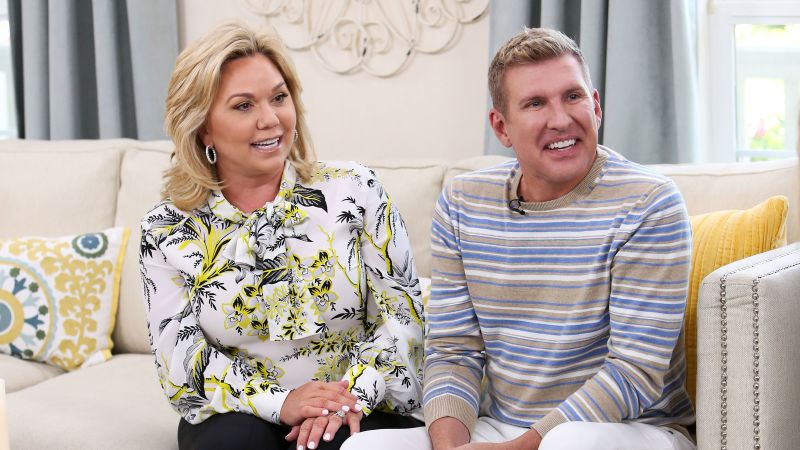Preventing Early Heart Attacks: Lessons From Partner Losses

Welcome to your ultimate source for breaking news, trending updates, and in-depth stories from around the world. Whether it's politics, technology, entertainment, sports, or lifestyle, we bring you real-time updates that keep you informed and ahead of the curve.
Our team works tirelessly to ensure you never miss a moment. From the latest developments in global events to the most talked-about topics on social media, our news platform is designed to deliver accurate and timely information, all in one place.
Stay in the know and join thousands of readers who trust us for reliable, up-to-date content. Explore our expertly curated articles and dive deeper into the stories that matter to you. Visit Best Website now and be part of the conversation. Don't miss out on the headlines that shape our world!
Table of Contents
Preventing Early Heart Attacks: Lessons from Partner Losses
The sudden loss of a partner is devastating, often triggering a cascade of emotional and physical consequences. While grief is a natural and necessary process, recent studies highlight a startling correlation: the increased risk of heart attack and other cardiovascular events following the death of a spouse or significant other. Understanding this connection is crucial, not only for those grieving but for everyone seeking to prevent premature heart attacks. This article explores the link between bereavement and cardiovascular health, offering practical strategies for mitigating risk.
The Heartbreak Connection: Grief and Cardiovascular Health
Losing a loved one can profoundly impact your heart health. The stress of bereavement – encompassing emotional distress, sleep disruption, changes in diet and exercise habits, and social isolation – significantly increases the risk of heart attack, particularly in the immediate aftermath of the loss. Studies have shown a spike in cardiovascular events in the weeks and months following the death of a spouse, often attributed to the physiological effects of prolonged stress on the body. This isn't about blaming grief; it's about understanding its impact and learning how to navigate it safely.
Understanding the Physiological Response to Grief
The body's stress response, triggered by grief, involves the release of hormones like cortisol and adrenaline. Chronic elevation of these hormones can contribute to:
- Increased blood pressure: Sustained high blood pressure is a major risk factor for heart disease.
- Inflammation: Chronic inflammation throughout the body can damage blood vessels and increase the risk of heart attack and stroke.
- Blood clot formation: Stress can increase the likelihood of blood clots, which can lead to heart attacks and strokes.
- Disrupted sleep patterns: Lack of sleep further exacerbates stress and negatively impacts cardiovascular health.
Protecting Your Heart After Loss: Practical Strategies
While grief is an unavoidable part of life, mitigating its impact on your cardiovascular health is possible. Here are key steps to consider:
- Seek Support: Connecting with friends, family, support groups, or a therapist is crucial. Sharing your grief and receiving emotional support can significantly reduce stress levels. Consider joining a grief support group – many communities offer these valuable resources. [Link to a relevant grief support resource website]
- Prioritize Self-Care: This includes maintaining a healthy diet, engaging in regular physical activity (even short walks can help), and getting sufficient sleep. Even small, consistent steps make a difference.
- Manage Stress: Explore stress-reduction techniques such as meditation, deep breathing exercises, or yoga. These practices can help regulate your body's stress response. [Link to a reputable website on stress management techniques]
- Monitor Your Health: Regular check-ups with your doctor are essential, especially during periods of significant stress. Discuss your grief with your physician and monitor your blood pressure and cholesterol levels.
- Maintain Social Connections: Isolation exacerbates grief's impact. Make an effort to maintain and build relationships with loved ones.
Looking Ahead: Preventing Heart Attacks for Everyone
The lessons learned from the increased risk associated with bereavement apply broadly to heart health. Maintaining a healthy lifestyle, managing stress effectively, and seeking support when needed are crucial preventative measures for everyone, regardless of recent loss. By understanding the interconnectedness of emotional and physical well-being, we can work towards a healthier and more resilient future.
Disclaimer: This article provides general information and should not be considered medical advice. Consult with a healthcare professional for personalized guidance on managing your cardiovascular health and coping with grief.

Thank you for visiting our website, your trusted source for the latest updates and in-depth coverage on Preventing Early Heart Attacks: Lessons From Partner Losses. We're committed to keeping you informed with timely and accurate information to meet your curiosity and needs.
If you have any questions, suggestions, or feedback, we'd love to hear from you. Your insights are valuable to us and help us improve to serve you better. Feel free to reach out through our contact page.
Don't forget to bookmark our website and check back regularly for the latest headlines and trending topics. See you next time, and thank you for being part of our growing community!
Featured Posts
-
 Gaza Child Deaths Un Envoy Weeps Demands Action Watch Video
May 29, 2025
Gaza Child Deaths Un Envoy Weeps Demands Action Watch Video
May 29, 2025 -
 Presidential Pardon Trump Forgives Reality Show Couples Financial Crimes
May 29, 2025
Presidential Pardon Trump Forgives Reality Show Couples Financial Crimes
May 29, 2025 -
 Gaza Receives Aid Us Funded Group Announces Deliveries
May 29, 2025
Gaza Receives Aid Us Funded Group Announces Deliveries
May 29, 2025 -
 Tensions Escalate In Jerusalem Following March By Ultra Nationalist Israelis
May 29, 2025
Tensions Escalate In Jerusalem Following March By Ultra Nationalist Israelis
May 29, 2025 -
 The Macron Campaign Ad Withdrawal What Happened
May 29, 2025
The Macron Campaign Ad Withdrawal What Happened
May 29, 2025
